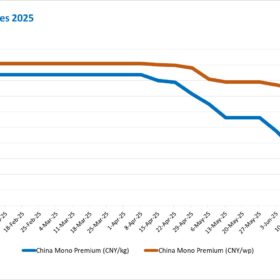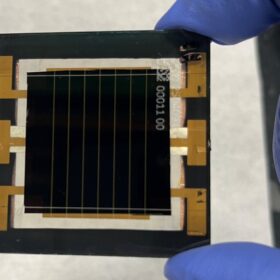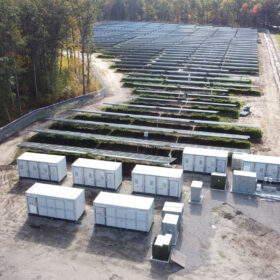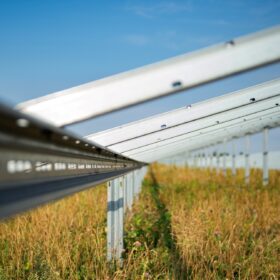China polysilicon price increases amid regulatory signals
In a new weekly update for pv magazine, OPIS, a Dow Jones company, provides a quick look at the main price trends in the global PV industry.
What standards for agrivoltaics?
The technology which combines solar PV panels and agriculture is gaining ground. IEC Standards for solar photovoltaic (PV) systems already exist, but more might be required, dealing with some of the more specific issues relating to agriculture.
NREL, CubicPV achieves 24% efficiency for perovskite mini solar module
A U.S.-based collaboration between the National Renewable Energy Laboratory (NREL) and CubicPV has yielded a perovskite minimodule with certified efficiency of 24.0%. The two noted that it is the first time a U.S. effort has set a record in the perovskite mini module category.
The Hydrogen Stream: IIT Madras, Hyundai to launch green hydrogen innovation centre
Hyundai Motor India Ltd (HMIL), in collaboration with IIT Madras, will establish a 65,000 sq. ft. green hydrogen innovation centre in Chennai, enabling research, development, and deployment of hydrogen technologies.
Longi unveils 34.58%-efficient tandem perovskite-silicon solar cell based on asymmetric self-assembled monolayer
In a new scientific paper published in nature, the Chinese manufacturer presented a new tandem perovskite-silicon solar cell based on a bottom cell with a heterojunction design. It also used a new type of self-assembled monolayer that reportedly reduces non-radiative recombination and increases cell efficiency.
First Solar uses quantum dots to boost module efficiency
Quantum dot technology promises to boost bifacial solar module output. The company entered into a supply agreement with specialist UbiQD.
WoodMac: World needs 1.4 TW of grid-forming batteries by 2034
The data company says investments of $1.2 trillion in battery energy storage systems (BESS) will be required to support the installation of over 5.9 TW of new wind and solar capacity globally through 2034.
Solarix Solar launches new terracotta solar panel
The Netherlands-based solar façade panel and mounting system provider has added a new terracotta rooftop module to its product range. It also announced it is expanding it sales network and boosting its manufacturing capacity after raising €5.5 million in financing.
K2 Systems unveils new pitched roof mounting solutions
K2 Systems has introduced two new pitched roof mounting components for residential solar: the SingleHook 3S Light, made of aluminum and stainless steel; and the InsertionRail 2.0, an aluminum mounting rail.
SolarPower Europe maps EU solar tracker supply chain
SolarPower Europe has underscored the role of domestic mounting system manufacturers in driving PV deployment across Europe, while calling for the adoption of international customs codes, stricter quality standards, and the inclusion of fixed-tilt racking systems in national resilience technology lists under the EU Net-Zero Industry Act (NZIA).















